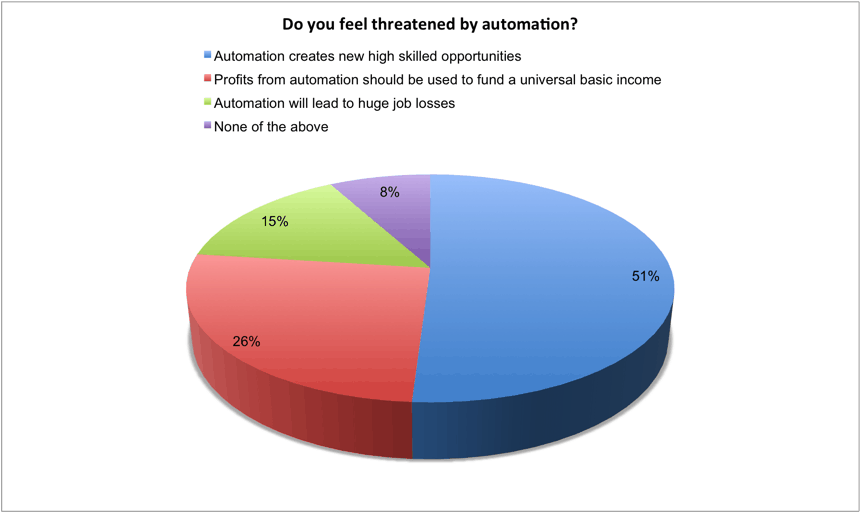
Our last poll of 2016 focused on automation and was prompted by Bank of England governor Mark Carney's warning that automation technology will put millions of jobs at risk.
Carney’s comments followed research published in 2016 by Citi and Oxford University claiming that 57 per cent of jobs across the OECD are at risk from automation.
With this in mind, we asked readers if they fear automation, and the answer was a resounding 'no' with 51 per cent believing that automation creates new high skilled opportunities.
Just over a quarter of respondents (26 per cent) thought profits from automation should be used to fund a universal basic income, followed by 15 per cent who took the view that automation will lead to huge job losses. The remaining eight per cent couldn't find a fit with the options presented, choosing instead to select 'None of the above'.
Reaction round-up
Tristan Melland: Automation is inevitable and desirable. The world will will end up with 5 Billion useless people, their only function being consumers and “enjoying” life. Our trick as engineers and leaders is to concentrate on the front end, the creative and new, which will not be a n AI capability.
Alex Noble: I voted for “Automation creates new high skilled opportunities”, however I fear that if we don’t invest heavily in education for the next generation and presenting these higher skilled jobs for people then it will only be the elite that will benefit from this modernisation of automation.
Clive Davis: I am yet to be convinced that the level of automation is increasing quickly. I believe the level is changing slowly, as it has done for the 250 years or so. Another advantage of automation is that we can get manufacturing back to the UK as low wages overseas give a smaller cost advantage.
What do you think? Let us know in Comments below.





Swiss geoengineering start-up targets methane removal
No mention whatsoever about the effect of increased methane levels/iron chloride in the ocean on the pH and chemical properties of the ocean - are we...